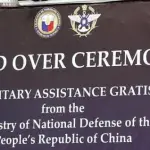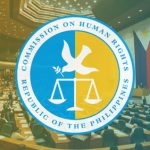Philippine National Police said the Philippines only has a single case of extrajudicial killings under President Rodrigo Duterte’s administration.
PNP spokesperson Chief Supt. Dionardo Carlos said on October 6 that they only recorded one case of EJK in the country from July 1, 2016 to September 30, 2017, referring to the killing of journalist Larry Que in December 2016 in Catanduanes.
[ads2]
His statement came after the recent SWS survey showed that Filipinos are worried that they or someone they know may become a victim of EJK.
The PNP protects every individual’s right to life. To allay or remove their fear of becoming victims of EJK, let it be known that under the present administration, there is only one case of extra-judicial killing or EJK for the period July 1, 2016, to September 30, 2017,” Carlos relayed in a text message.
Carlos also added that just like 90 percent of the 1200 survey respondents who want the drug suspects arrested alive, the PNP wanted the same thing, too.
To this, Human Rights Watch Geneva director John Fisher told Rappler that the Duterte government cannot dismiss EJK as non-existent simply by limiting how it is defined.
“The fact is that there have been thousands of reported deaths in the Philippines in the context of the so-called war on drugs. The government cannot just define these bodies out of existence through the application of some legal term,” Fisher told Rappler.
Rappler noted that official data show there have been at least 3,850 people who were killed in police operations while at least 2,290 more were mostly victims of vigilantes. But despite these numbers in the thousands, the PNP said the Philippines has “officially no case” of EJK since Duterte took office.
According to Fisher, an EJK is the “killing of a person by government authorities without sanction of judicial proceeding or legal process.”
[ads1]
He added, “It is very, very clear that when somebody is killed and in the context of police operations, there is no judicial process, no legal process, there aren’t arrests or charges. It is just a killing that’s taking place outside of the legal process.”
This “no EJK” statement was also the official position of the Philippines during the Universal Periodic Review in September.
“[Their] responses to the UPR process made it very clear that they simply won’t accept the extent or scope of the problem or the problem even exists, let alone putting processes to try and identify those responsible or bring these human rights violations to an end,” Fisher said.
“So it’s inevitable, I think, that they will use national definition or legal tricks or semantic techniques to avoid responsibility for the deaths that are taking place,” he added.
The Philippines’ rejection to consider the UPR recommendations led to backlash by Iceland and almost 40 states at the United Nations.
“The international community is not fooled by the government’s assertion that the killings perpetrated in the name of the so-called war on drugs don’t constitute extrajudicial killings,” Fisher added.
“They need to be accountable [for] these deaths,” Fisher said.
The Commission on Human Rights on October 9 also urged the Philippine government to do something about the cases of EJK instead of continue denying the country’s culture of impunity.
“Now that thousands of deaths related to the ongoing campaign against illegal drugs have been documented and yet no one has been prosecuted, it clearly speaks of how the Philippine government failed to fulfill its obligation to conduct investigations, prosecute, and convict those responsible for violating human rights,” the CHR said.
“This accurately shows that impunity persists in our society. The government must create an environment conducive to the protection of human rights, and tolerance of impunity is a violation in itself,” the statement added.
The CHR noted that it had a meeting with the PNP to encourage them to start a joint task force that will examine the EJK cases, but the PNP refused to reveal spot reports.
“Although it became an opportunity for discussion between the two agencies to address the rising death toll related to the campaign against illegal drugs, the PNP’s denial to share police spot reports makes the investigation more arduous for the Commission and other human rights groups,” CHR said.
“Peace, order, and security of the country can only be obtained if wheels of justice are reinforced to prosecute individuals/ organizations responsible for these crimes. Only by bringing the perpetrators to court can affirm the rule of law and restore trust in the institutions of society,” it added.
“Free movement of perpetrators in the public, especially those who remain in their powerful positions and have the ability to protect themselves from prosecution, breeds not only loss of trust in justice, but also an ongoing threat and fear-mongering among the public,” it read.
Sources: ( abs-cbn.com , rappler.com )
[ads3]


